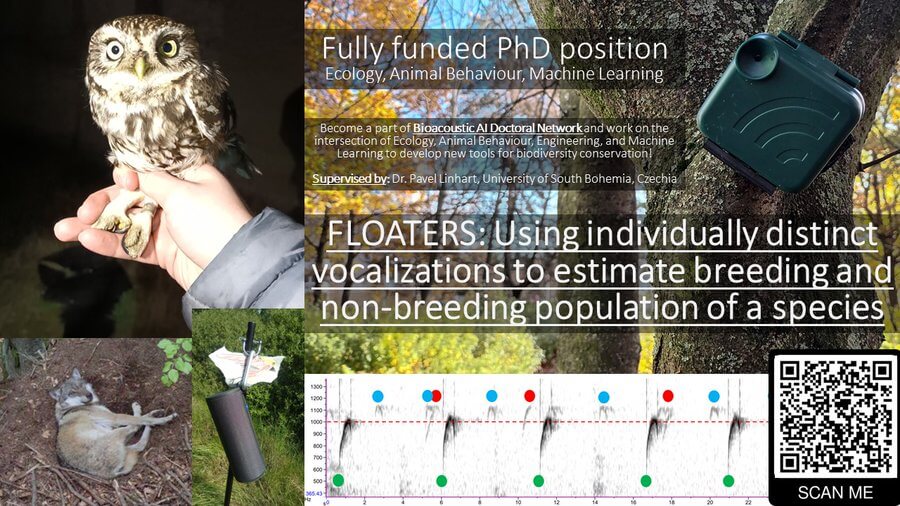
The candidate will be supervised by Dr. Pavel Linhart within the EU-funded project Bioacoustic AI for wildlife protection (BiacAI, Marie Skłodowska-Curie Doctoral Networks, Grant agreement ID: 101116715). The Candidate will closely collaborate with Tuomas Virtanen (Tampere University, Finland) and Andrew Hill (Open Acoustic Devices).
- Application deadline: October 31, 2023
- The position is available from March 01, 2024.
The Consortium
The Bioacoustic AI Consortium is a new doctoral network focused on training the next generation of researchers at the interface of bioacoustics & AI. The network includes ten fully-funded PhD positions based in various countries: The Netherlands, Germany, France, Belgium, Czechia, Finland, and the UK. PhD candidates will work on their projects in collaboration with experts in both AI and ecology/zoology. They will also collaborate with project partners at other European institutions, including extended research visits for in-depth teamwork. The PhD projects range from developing AI/signal processing algorithms to answering questions in ecology and animal behavior.
This PhD is one of ten in the BioacAI project. Please, do also consider applying to other positions shown at the consortium webpage.
About the Project
Floaters are individuals representing a non-breeding part of the population. They are typically highly mobile and often secretive individuals prospecting for their own territory. They can form large portions (up to 70%) of the total population in many species, an important buffer for breeding populations. Changes in floater populations could thus provide early warning to conservation managers. However, it is terribly laborious to estimate the floater prevalence and numbers by existing methods. The project will aim to: 1) develop novel automatic methods for fast screening of passive recordings to detect vocalisations of specific known individuals (breeders within existing territories) and their rare vocal interactions with floaters (unknown individuals roaming through the area); 2) use these detection algorithms to estimate and validate prevalence of floaters within a population. Model species will include both common species (e.g. common woodpigeon, short-toed treecreeper), as well as species of conservation concern (e.g. wolf, little owl). To achieve the goals, the candidate is expected to combine the expertise on animal vocal individuality (Pavel Linhart, University of South Bohemia), field audio recording (Andrew Hill, Open Acoustic Devices), and machine learning (Tuomas Virtanen, Tampere University, Finland).
To learn more, download the full application information below.




